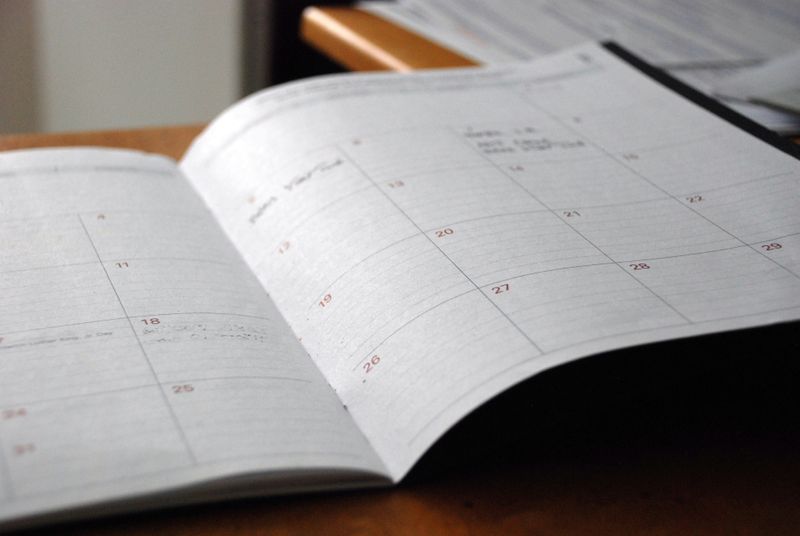
This logo isn't an ad or affiliate link. It's an organization that shares in our mission, and empowered the authors to share their insights in Byte form.
Rumie vets Bytes for compliance with our
Standards.
The organization is responsible for the completeness and reliability of the content.
Learn more
about how Rumie works with partners.
Have you ever failed an exam and felt crushed? Are you overwhelmed by balancing work and study?

Been there, done that — I failed an exam in my first year at university, and now I'm juggling a full-time job with a Master's degree.
When I was in university, I wanted to ace every exam and paper. I soon learned this wasn't always possible!
Some tips and tricks helped me manage my academic expectations and enjoy my studies.

1. Break your goals down
Your overall academic goal may be a certain grade or GPA — but it's much easier to aim for smaller goals.
I was overwhelmed when trying to pass a Spanish exam. Once I simplified it into steps, I knew what I was aiming for. This helped me see the goal seem more achievable.
SMART Goals
SMART goals can help you set your academic expectations. A SMART goal is a goal that is Specific, Measured, Achievable, Realistic, and Timely.

One of the SMART goals I set myself for my Spanish exam was to study 10 pieces of vocabulary a day on the bus. This meant that I wasn't putting myself under huge pressure to learn 100 words a day — and it made good use of my commute. This realistic SMART goal helped me to set my expectations and stay calm.
Once you have set your goals, you can then work out WHEN you'll achieve them.
2. Manage your time
 Photo by Eric Rothermel on Unsplash
Photo by Eric Rothermel on UnsplashWork out how much time you can give to your studies. There is no right or wrong amount of time — look at your schedule and decide what is right for you. Your SMART goals can also help you figure out how much studying you need to do.
You can use a study planner to help you organize your time. Choose an approach that suits you:
you can buy a planner, notebook, or bullet journal
use an online calendar
Think about other important activities that you want to balance with your studies. For example, I knew I wanted to include time for a short walk each day, and that my brain switches off after 8 p.m. These things helped me work out a study schedule.
Think about:
exercise
seeing friends and family
hobbies

Be realistic — it's easy to be overambitious. When I started my Master's program, I knew I could do a maximum of 8 hours of study a week. To start, I planned for 6 hours of studying and observed how that worked out. To set sustainable expectations,plan your study schedule in line with what your life will allow.
Quiz
Lucy has class every morning and a part time job on weekday evenings. She struggles to get up early and likes to exercise once she finishes up in work. When could she plan to study? Select all that apply:
Lucy might struggle to study before class as she doesn't like getting up early, and it's important she prioritizes exercise as well as study. Studying on weekends or between class and work are good options for her.
Did you know?
This Byte was created by a volunteer professional that wanted to share this insight to help you succeed - no agenda, no cost.
3. Find a mentor
A mentor is someone who can guide and support you. Try to find a mentor who has been in a similar position and can offer valuable advice on your studies.
Why should I find a mentor?
A mentor can give you a realistic idea of the academic standards in your program and help youset expectations. Different teachers and professors have different standards, and my mentor was able to give me the inside scoop. For example, a mentor can help figure out whether a "B" is good or bad for a particular teacher or subject.
How do I find a mentor?
Many universities, schools, and colleges run mentor programs. Ask your guidance counselor if such a program exists at your educational institution.
Post a notice on your university noticeboard.
Ask a teacher or professor if they can recommend someone to be a mentor and reach out to them.
What do I ask my mentor?
There are no silly questions to ask your mentor, but you may want to ask them:
What are some mistakes they made when they were in your position?
How did they manage the workload?
Which subjects or modules required more time and work?
4. Ask for help
Easier said than done, I know. But by asking for help, you can help manage your expectations by using the advice and experience of those around you. While a mentor is a guide, sometimes we need help from people who know us personally.
When I'm feeling stressed about my studies, I ask a friend to go for a walk with me — fresh air and a pair of listening ears always help.

Why ask for help?
Life is hard! Studying is hard! Sometimes we need to get things off our chest or have a heart-to-heart with someone. Chatting about what's going on for us can help in many ways, especially as it can stop us from feeling alone.
Who can I ask for help?
You can ask for help from someone who knows you well or someone involved with your studies. Options include:
your parents or guardians
a trusted friend
someone you are studying with
a teacher or professor
a guidance counsellor
What kind of help do I ask for?
You can ask for help with:
creating a study plan
proofreading essays
revising for an exam
support with regular life stuff — cooking, an exercise buddy, chatting about your current challenges
Take Action

When you've got clear academic expectations, you're able to enjoy your studies more. It's a big challenge, so follow the below steps:
This Byte has been authored by
Jenny Galligan
Teacher